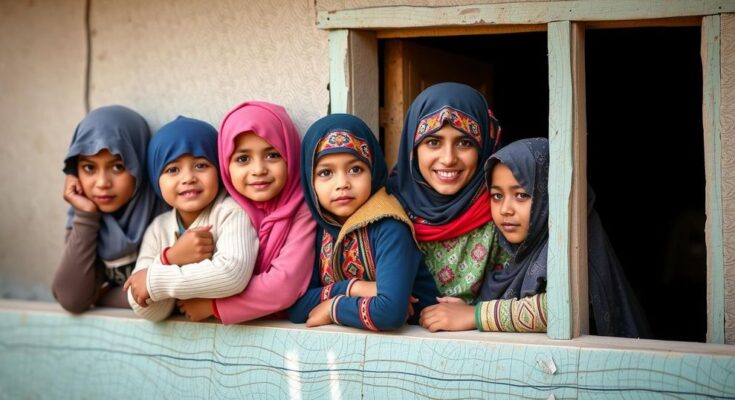The World Food Program (WFP) affirms its commitment to support Iran as a major host of refugees, following meetings between WFP’s representative Maysaa Alghribawy and Iranian officials. Recent influxes of Afghans underscore the challenges faced by Iran, which may reconsider its refugee policies unless international support increases. Educational needs and infrastructure pressures are also significant issues highlighted during discussions.
TEHRAN – Maysaa Alghribawy, the newly appointed representative of the World Food Program (WFP) in Iran, expressed the organization’s strong commitment to assisting Iran in its pivotal role as a host for refugees. In a meeting with Iranian Foreign Minister Abbas Araghchi on January 12, Alghribawy highlighted the need for enhanced cooperation to tackle the challenges facing the WFP in the region, as reported by the foreign ministry’s website.
During their discussion, Araghchi emphasized the importance of collaborative efforts to address humanitarian crises in West Asia, particularly those involving refugees and migrants.
Recent statistics indicate that approximately 4,000 Afghans with valid passports are entering Iran daily. The National Organization for Migration reports that around six million Afghans currently reside in Iran, both documented and undocumented. Various factors, such as regional political and social instabilities, are contributing to this migration trend.
Yar-Ahmadi, head of the National Organization for Migration, noted that foreign nationals entering Iran require a monetary deposit for residency. He stressed the need for proper documentation to better manage the high influx of migrants.
Concerns about Iran’s refugee policies were expressed in October 2024, suggesting that should the international community fail to adequately share the responsibility of refugee hosting, Iran may reconsider its immigration policies. Yar-Ahmadi commented on the disparity between the needs of refugees and the UNHCR’s budget, stating that less than one percent of the costs associated with hosting refugees have been covered, making it unlikely for Iran to accommodate more refugees in the future.
Current priorities include resettling vulnerable refugees in third countries. Nonetheless, the number of refugees receiving insurance has decreased, contradicting previous commitments made by international bodies. Additionally, Yar-Ahmadi called for financial backing from the UNHCR to mitigate educational challenges stemming from the influx of Afghan students, asserting the urgent need for new schools and related infrastructure to accommodate the educational needs of these students.
Despite the daunting challenges, the Iranian government maintains its readiness to collaborate with humanitarian organizations to support refugee needs, separating political issues from humanitarian efforts.
Overall, the partnership between the WFP and Iran is crucial in addressing both the immediate and long-term needs of refugees in the region.
The World Food Program (WFP) plays a significant role in humanitarian efforts, particularly in regions experiencing large-scale displacement. Iran has been among the foremost nations accommodating a substantial influx of Afghan refugees due to ongoing regional instability. This situation has generated increasing pressures on Iran’s infrastructure and social systems, leading to discussions on the viability of current policies towards refugees and the necessity for international cooperation to alleviate mounting challenges. Recent statements from Iranian officials underscore the urgent need for balanced sharing of responsibilities between Iran and the international community in addressing refugee crises.
In conclusion, the commitment of the WFP to support Iran highlights the essential partnership needed to address complex humanitarian challenges stemming from refugee crises. The high rate of Afghan immigration into Iran underlines the pressing need for collaborative efforts to enhance refugee management, education, and overall well-being. Without an equitable distribution of responsibilities, Iran’s capacity to effectively host refugees may come into question, necessitating urgent action from the international community.
Original Source: www.tehrantimes.com




